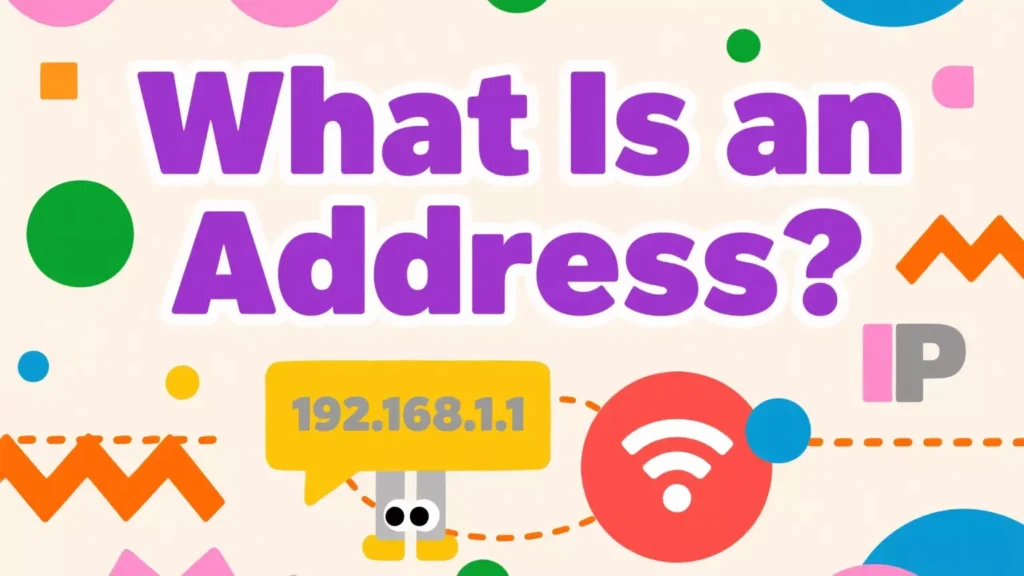If you’ve ever connected a device to the internet, you’ve used an IP address—whether you realized it or not. This unique identifier allows computers, smartphones, and servers to communicate with one another, making it a fundamental part of the digital world. In this guide, we’ll break down what an IP address is, how it works, the different types you might encounter, and why understanding it is important for both everyday internet users and businesses.

Understanding the Basics of an IP Address
An IP address (short for Internet Protocol address) is a numerical label assigned to every device connected to a network. Think of it as a digital home address—it tells other devices where to send information.
The format of an IP address depends on the version:
- IPv4 uses a 32-bit format, shown as four numbers separated by dots (e.g., 192.168.1.1).
- IPv6 uses a 128-bit format, expressed in hexadecimal and separated by colons (e.g., 2001:0db8:85a3:0000:0000:8a2e:0370:7334).
How IP Addresses Work in Everyday Life
When you visit a website, your device sends a request through your internet service provider (ISP) to the site’s server. The server sees your IP address and sends the data back so you can view the page. This process happens in milliseconds and is essential for browsing, streaming, gaming, and more.
Public vs. Private IP Addresses
IP addresses can be categorized into public and private:
- Public IP Address: Assigned by your ISP, it identifies your device to the wider internet.
- Private IP Address: Used within a local network (e.g., in your home or office) to identify devices internally.
Private IP ranges include:
- 10.0.0.0 to 10.255.255.255
- 172.16.0.0 to 172.31.255.255
- 192.168.0.0 to 192.168.255.255
Static vs. Dynamic IP Addresses
- Static IP: Permanently assigned and doesn’t change. Often used by businesses for hosting websites or remote access.
- Dynamic IP: Changes periodically and is automatically assigned by the ISP. Ideal for general home internet use.
Dynamic IPs are more common because they are cost-effective and provide an added layer of privacy.
The Role of DNS in IP Address Usage
The Domain Name System (DNS) acts like a phone book for the internet. It translates human-readable domain names (like www.example.com) into IP addresses. Without DNS, you would need to remember long strings of numbers instead of website names.
IPv4 vs. IPv6: What’s the Difference?
- IPv4: The original IP addressing system, still widely used today. However, it has a limited number of addresses.
- IPv6: Created to solve IPv4 exhaustion, offering a vastly larger pool of addresses, improved efficiency, and built-in security features.
Why IP Addresses Matter for Privacy and Security

Your IP address can reveal your approximate location and your ISP, which can be used to track your online activity. This is why many individuals and businesses use proxy servers or VPNs to mask their real IP.
For example, companies like IPFLY provide various proxy solutions—including dynamic residential proxies and datacenter proxies—that allow you to browse more securely, protect business data, and conduct activities like market research without revealing your true IP.
How to Find Your IP Address
Finding your IP address is simple:
- Windows: Search for “cmd” → type
ipconfig→ look for “IPv4 Address.” - Mac: Go to System Preferences → Network → select your connection → view your IP.
- Mobile: Check under Wi-Fi settings.
- Online: Use tools like IPInfo to instantly display your public IP.
Common Issues Related to IP Addresses
Some problems you might encounter include:
- IP conflicts: When two devices share the same IP on a local network.
- Blocked IPs: Websites or platforms may block certain IP ranges.
- Geo-restrictions: Some content is only available to certain IP regions.
The Future of IP Addressing
With the growth of the Internet of Things (IoT), billions of new devices are connecting online. IPv6 adoption is expected to accelerate, and IP management will become even more critical for cybersecurity and data privacy.
Conclusion

An IP address is much more than just a number—it’s the foundation of internet communication. Understanding its types, functions, and implications helps you make smarter decisions about online security and connectivity. Whether you’re streaming at home or managing a business network, knowing how IP addresses work gives you the power to control your digital footprint.
To ensure secure and efficient internet use, consider leveraging advanced proxy solutions like those offered by IPFLY. Visit https://www.ipfly.net/ to learn how our services can help you manage your IP needs effectively. Join our Telegram channel for the latest updates and support: https://t.me/IPFLY_PROXY.


